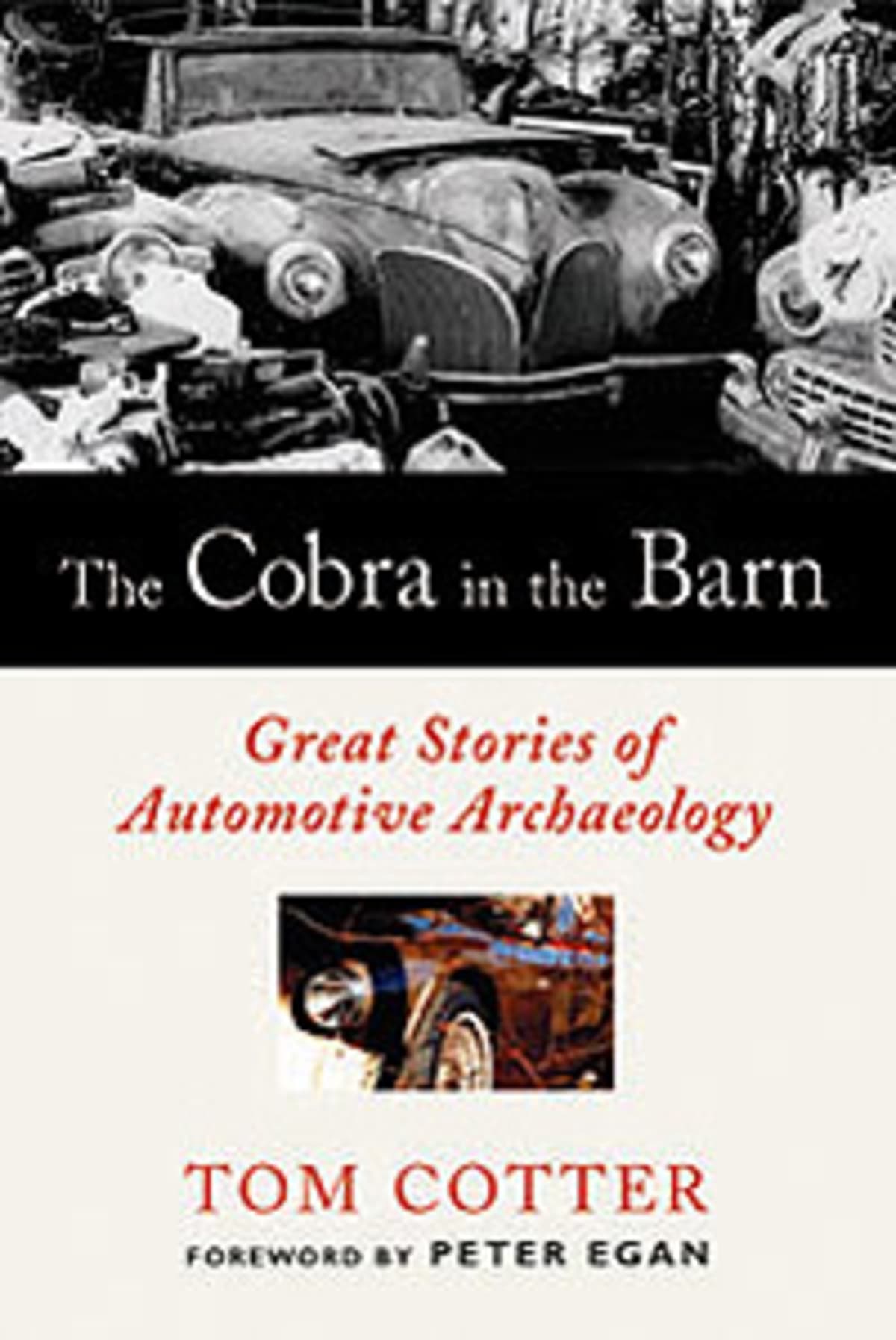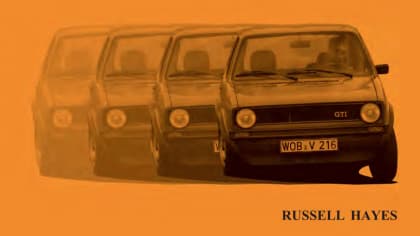BOOK REVIEW: THE COBRA IN THE BARN
This article is from our archives and has not been updated and integrated with our "new" site yet... Even so, it's still awesome - so keep reading!
Published on Sat, May 20, 2006
By: The LACar Editorial Staff
THE COBRA IN THE BARN
Review by BRIAN KENNEDY, PhD
Tom Cotter might not know it yet, but he's going to have a
problem on his hands pretty soon. As soon, that is, as a few people start
reading this book. Because when they do, they're going to finish it fast. Then
they're going to demand another. And another. Cotter, known in automotive circles for having built a
large PR agency servicing the elite of NASCAR clients, has also been a "barn
finder" for years, stumbling upon or searching out cars to buy after owners have
left them untouched, if not unloved. You know the kind of cars in view
here - they're the stuff of the urban legend that starts something like, "Yeah, I
know a guy who knew a guy who bought a 66 Mustang. A Shelby, it was." That story starts ends one of two ways. "Kid who had it
got killed in Viet Nam, and his parents stored the car for years." Or, "Old
lady who owned it thought the engine was seized, but all it needed was a couple
of freeze plugs." It turns out, those kinds of things actually happen, and
this book compiles dozens of tales which will make you swear that you're going
to keep a sharper eye out the next time you wander down a street, even your own,
to see what might be hidden in garages and under tarps. Proof of that comes all
the way at the end of the book, when Cotter reveals that a special car was
located for twenty years in the house next to his, and he had no idea it was
there. But I'm not telling you more than that. You can enjoy reading about it
for yourself. As the book unfolds, readers realize that the story is
always the same - car in barn, lucky timing, buy, initial startup, rebuilding
process (though some cars are happily left in the condition in which they're
found, as you'll see), driving and enjoying. But though the formula doesn't
vary, the human element does. The psychology of the sellers differs incredibly
from one chapter to the next. The lucky stroke which makes buyers aware of cars
is not always the same. The cars themselves are incredibly different one from
another. And so it's impossible to put this book down and turn out the lights
for the night. Cruising through his volume, you'll learn a few things.
First, rarely are these cars "for sale" but usually, they can be bought. It
just takes time, patience, luck, and the right offer. Second, there's often more available than the car itself.
Parts, history, paperwork - garages are full of goodies, and sometimes the lucky
barn finder comes away with way more than he or she thought possible in the
first place. Like more than one car, or an extra engine that goes perfectly
with another project.
Third, the kind of people who store a car for decades are often
slightly outside the mainstream when it comes to their social skills. They're
not nuts (well, some of them may be), but they definitely don't always play well
with others. (You'll see what I mean when you get to the old lady with gun
story). So hopeful finders of the cars these folks own will need to master a
combination of skills which include evasion, escape, and psychology. From what
I can tell, that takes time, and the more one does it, the better the skills.
But that's what makes the barn finding masters the best at what they do, and
it's what makes their stories worth reading. Fourth, hopeful barn finders should never overlook any
possibility when it comes to finding old iron. Tarps, garages, sheds,
basements, interior rooms of houses - yes, but read the book to see for yourself - a
forgotten classic can be found anywhere. Not all the stories in the volume are Cotter's, and that's
what gives The Cobra in the Barn part of its appeal. Reading it, you'll
learn about models, makes, specials, and one-off race cars you may never have
heard of before. The stories come from the US, Europe, and other places. The other benefit of having some of the stories come from
outside his own experience is that, by doing so, Tom Cotter opens the
possibility that future similar volumes could be compiled, because this book as
a series won't depend just on Cotter having stories of his own to tell. And as
was mentioned above, you're gonna be begging him to get at it as soon as you
zoom through this volume. One final thing to like - though some of the finds in these
pages have generated incredible profits for those who grabbed them, the book
doesn't dwell on money, but on love. The point is stressed that it's bringing
old cars back to life and seeing them drive again which is the goal. It's about
the spirit of the car itself, raised from the dead. If you love cars and
believe they're alive (and if you're reading this review, you probably do), I
don't need to explain that further. In summary: the only thing wrong with this book is that
it's not twice as long, not because it's too short (it's a chunk of text - 256 pages), but because it's so interesting. But I'm sure others have
already told Cotter this. Here's hoping he's willing to give up some
barn-hunting time to put together another volume. Pronto.
The Cobra in the Barn
Great Stories of Automotive Archeology
by Tom Cotter
Published by Motorbooks
hardcover, 256 pages
$24.95
order via
Motorbooks
or
Amazon.com





